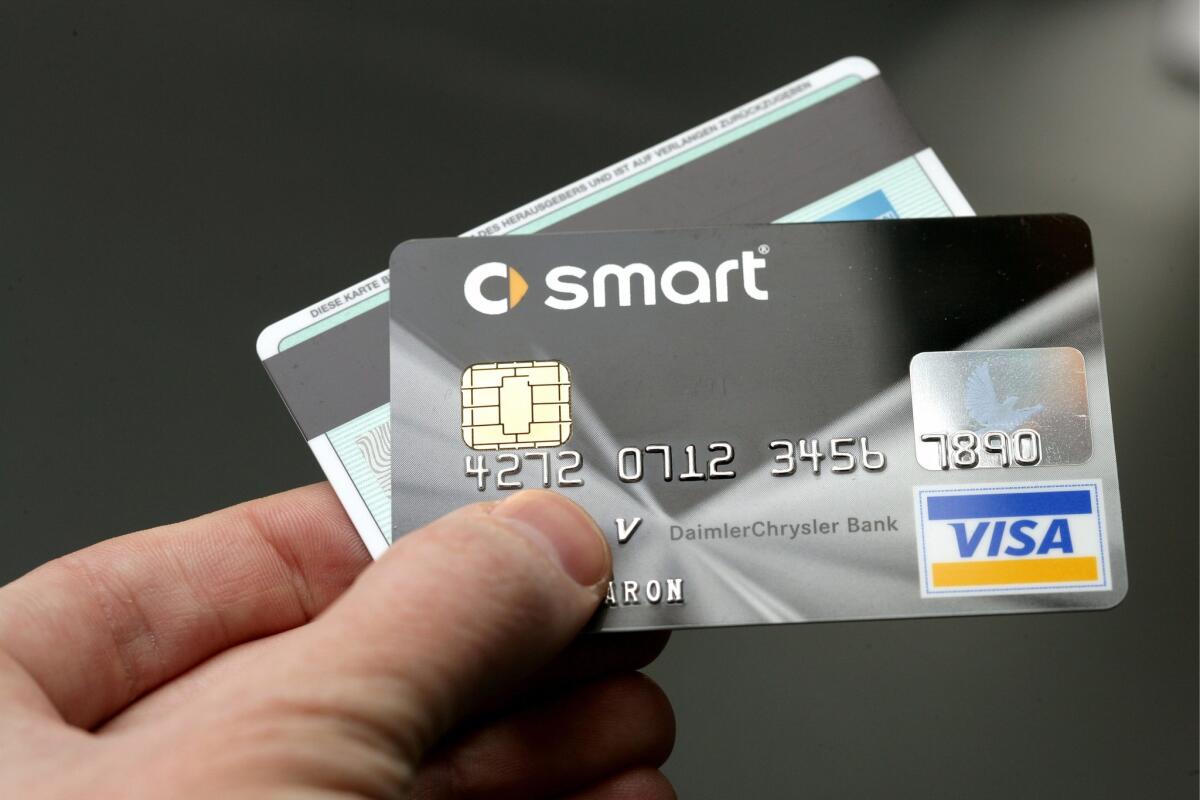Some small businesses still unsure about credit card chip technology

More than a quarter of small-business owners who said they would not implement the new EMV credit card chip readers before the Oct. 1 deadline said they did not understand the technology.
As the deadline looms to implement Europay, MasterCard and Visa chip credit card readers, some small-business owners are still unsure of how the technology works.
An online survey of small-business owners found that of those not planning on adopting EMV readers by the Oct. 1 deadline, 28% said it was because they did not understand what EMV technology was or how it would affect their business.
Forty percent of respondents said they would not be implementing the readers because their business does not process payments from credit or debit cards, according to a poll conducted by Manta, a small-business online resource.
EMV chip technology makes credit cards harder to counterfeit and makes transactions more secure by transmitting only a unique code that, if stolen by hackers, would “be akin to stealing an expired password,” said Matt Schulz, senior industry analyst for creditcards.com, which was not involved with the survey.
The change to EMV technology, which already is used in many other countries, requires a change in shopper psychology. Instead of swiping a card through the reader, consumers will be “dipping” by placing their card in a slot in the reader and pulling it out when the transaction is complete, Schulz said.
“It is a major change in something people have done in the same way for decades,” he said. “It’s understandable that there is that confusion.”
After Oct. 1, in-store counterfeit fraud liability shifts to either the credit card issuing financial institution or the merchant -- whichever party has not adopted chip technology.
But the magnetic stripe won’t be going away anytime soon. All of the new chip-enabled cards will still have the stripe on the back “for the foreseeable future” to help with the transition, Schulz said. Most of the new EMV readers will similarly have a swipe option, he said.
Small-business owners told Manta that they would not adopt the new card readers because they didn’t see enough EMV cards from their customers to make it worthwhile (16%), and they disagreed with the fraud liability shift to small-business owners (12%), according to the survey.
A smaller percentage, 2.9%, said EMV card readers are too expensive.
The results of the survey were first reported in the Washington Post.
The online survey, which polled 1,107 small-business owners that are members of Manta.com, was conducted in mid-June. The margin of error is 2.95 percentage points.
For more business news, follow @smasunaga.
More to Read
Inside the business of entertainment
The Wide Shot brings you news, analysis and insights on everything from streaming wars to production — and what it all means for the future.
You may occasionally receive promotional content from the Los Angeles Times.











